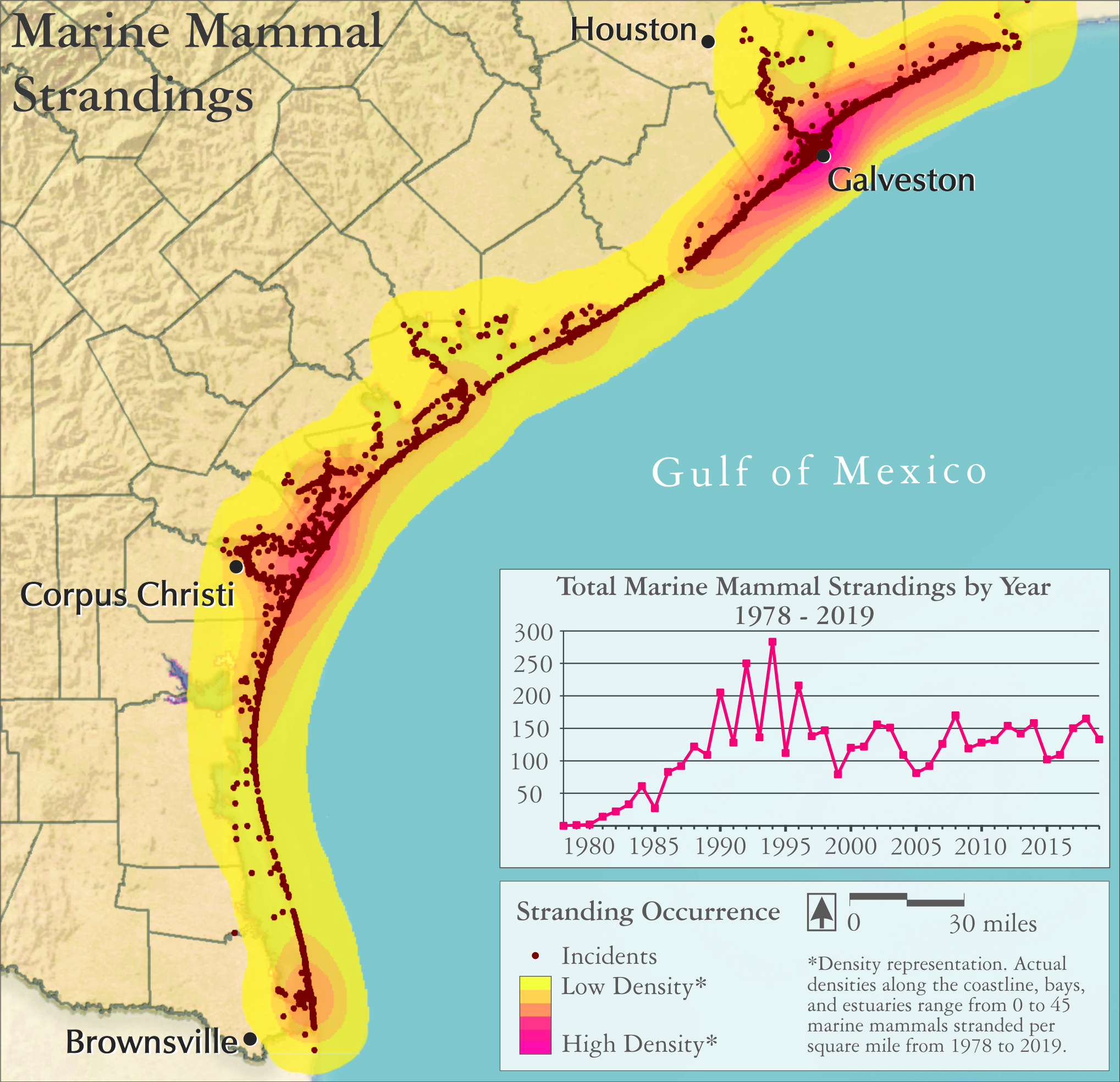
Marine Mammal Strandings
This map shows the stranding sites for over 4700 marine mammals that have come ashore in Texas, or that have been found nearby off the coast, during the 1978-2019 period.
Over 95% of the strandings involve bottlenose dolphins. The remainder include short-finned pilot whales, rough-toothed dolphins, false killer whale, pygmy sperm whale, Atlantic spotted dolphin, or melon-headed whales.
Many of the animals have obvious traumas – they have been harpooned, shot, caught in nets, or are suffering from ingested plastics. However, those are the exception. Most are in a state of advanced decay, so it is difficult to determine what the problem might be. Some of the more common causes of death are hard to identify, but it appears that biotoxins (such as brevetoxin, saxitoxin, ciguatoxin, domoic acid or okadaic acide) associated with algal blooms, or viral diseases, such as morbillivirus, may be a factor.
Some of these problems may be just proximate causes of death, not root causes. There are limits on understanding the full picture, given the decomposition of many of the animals that are found, and due to budget limits on tissue analysis. But, it seems that these animals may be stranding due to some kind of immune system problem, perhaps linked back to agricultural runoff and hypoxia or oil and dispersant spills.
Given the dolphins’ and whales’ perch high on the food chain, and with physiology similar to humans’ in many ways, there is continuing interest in trying to identify just what the problem(s) might be.
Sources:
Stratton, Liz. 2020. Coordinator, Marine Mammal Health and Stranding Response Program, National Oceanic and Atmospheric Agency, Office of Protected Resources. Personal communication, April and May 2020.
Tarpley, Raymond. 2020. Co-Founder, Texas Marine Mammal Stranding Network. Personal communication, April 16, 2020.
Whitehead, Heidi. 2020. Executive Director, Texas Marine Mammal Stranding Network. Personal communication, April 30, 2020.
